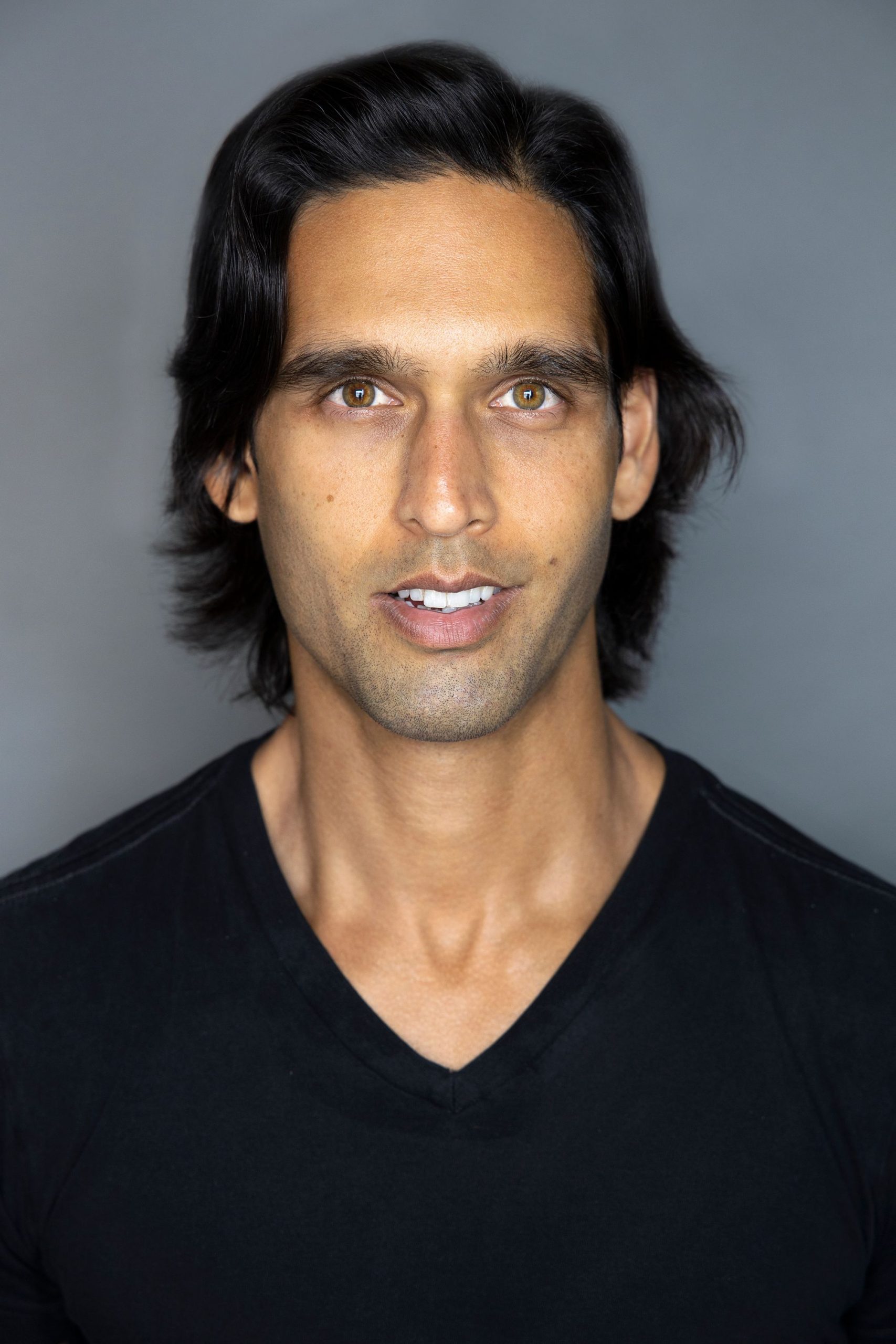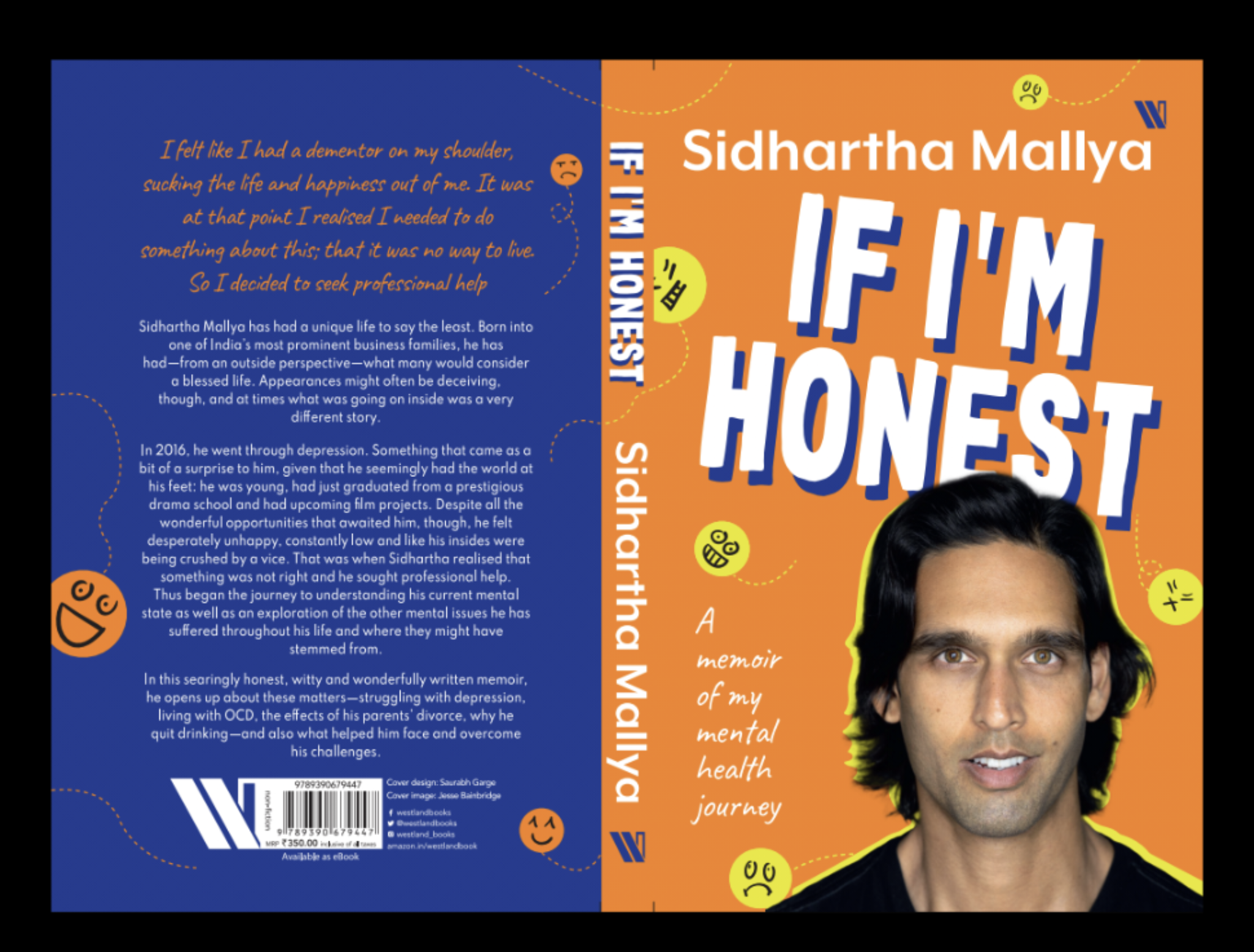Sidhartha Mallya by all accounts is an affluent, successful, famous young man whose life is quite unique when compared to most others. By lineage, he is part of one of India’s most prominent business families and from an outside perspective, it may seem to be a life of luxury and little struggle, but as we know, appearances can often be deceiving. Through his memoir, If I’m Honest, he bares all and gives an open and honest account of his mental health journey.
Read on for excerpts from our conversation with the freshly-minted author.
1. What sparked the desire to write a book?
After the success of my conSIDerThis series, and seeing how much of an impact I was able to have just by being honest and sharing my experiences, I decided that I had to continue doing whatever I could to shine a light on mental health, and the book seem to be the next obvious thing for me to do!
2. What has the experience of writing a book been like? What’s the process?
It was definitely an experience! And I have to say I have a newfound level of respect for all of the writers and authors out there because writing a book is definitely not an easy endeavour! In the beginning, I sat down and started typing, but after about 10,000 words I just wasn’t feeling this way of working. So what I did instead was to structure each chapter into a set of bullet points of what I wanted to speak about, and I then basically interviewed myself! I just talked and talked, and recorded it all. Then I transcribed the recordings and re-wrote them into the book.
3. What is the story behind the title, ‘If I’m Honest‘?
Throughout the book, I kept finding myself saying, ‘If I’m honest this’, ‘If I’m honest that’ and I was like ‘Hang on. I keep saying this, and this book is such an open and honest account of my life, so this should be the title!’
4. Famously and damagingly so, depression has in the past been referred to as the “rich man’s disease”. Even though, this view has been debunked, do you have anything to say about this myth?
I think it’s such a dangerous thing to think because it can either make people who might not have a lot feel like there is no hope for them, or it can make those who may come from more affluent backgrounds feel guilty for what they feel. Either way, it is a limiting belief that can be very dangerous. One of the key messages I try and convey in the book is that mental health issues don’t discriminate. It can affect anyone, at any stage of life, whether you are rich, poor, male, female, old, young etc. No one is immune to suffering from issues of mental health because underneath it all, we are all human!
5. What has your experience with depression been and what triggered your first bout in 2016?
I think for me I was definitely suffering from it well before 2016, I just didn’t have the awareness. One thing I’ve learned on my journey is that one can actually be depressed without knowing it, and this was certainly the case with me. I think it was my time at drama school, and all the work I was doing on inner body awareness and reconnecting with my emotions that helped me see it in 2016.
6. Your online series ‘ConSIDerThis’ is also primarily focused on mental health. Why and how did you decide that mental health was going to be one of your main life focuses other than drama and acting?
Quite by accident! It was on the one year anniversary of my quitting drinking that it really started. On that day, I put up a brief IG post saying how it had been a year since I stopped drinking, and some of the reasons as to why I stopped. The response I got was mind-blowing and thousands of people reached out to say how they could resonate with me, and how my open admission had inspired them! I was then like, ‘Well if I could help so many just by sharing my experiences with alcohol, maybe I can continue helping by sharing some of my other experiences.’ And that’s how the conSIDerThis series was born, and thus my advocacy around mental health.

7. What are the biggest lessons you’ve taken away and imbibed because of your struggle with depression?
That vulnerability and allowing ourselves to lower the guard and admit that we need help is actually one of the biggest shows of strength we have as human beings.
8. In a line, why is it necessary now more than ever for people to prioritise their mental health?
Because the world we live in today has more triggers than ever that can have an adverse effect on mental health. And this is only going to grow.
9. What are some coping mechanisms you’ve learnt to deal with stress, anxiety and your OCD especially through a fraught time such as this pandemic?
Surrender and acceptance have been something that I have started to practice. It’s a challenge at times, but definitely something I’m getting better at! I think a lot of the time, the internal pain we feel doesn’t come from what we are experiencing, but from the resistance to it. With regards to OCD, we can’t control our thoughts and feelings, but we can control our behaviour. And by trying to remember this, I have been able to get better at ‘fighting’ the thoughts and feelings, and instead, just allow them to come and go
10. Why is it essential that ppl understand the importance of language when talking about mental health and not use terms like OCD glibly or nonchalantly?
Firstly because to a sufferer, it can be wildly frustrating to hear the word just thrown around! But secondly, because we need to give things the importance they deserve.
11. Did your parents’ divorce play a big role as a trigger to your depression? What about being in the spotlight?
I’m not sure if it triggered the depression, because it happened years before 2016. But I think the lasting effects from it stayed with me and had more of an impact on me than I initially thought. And yes being in the spotlight definitely contributed to the way I was feeling, particularly during my time in India around 2010-2012ish. Although at the time I really didn’t see the impact it was having!
12. Was your decision to drop drinking driven by your mental health struggles?
Yes completely. Whether I had one drink or ten, I was getting crazy anxiety the next morning and my OCD was triggered. So I was like ‘clearly this isn’t having a positive impact on my life right now, so until I sort myself out, I am going to put drinking on the shelf’!
13. Your message for people on World Mental Health Day
Embrace your truth. You are a human being and have every right to feel the way you feel. Also seeking help ISN’T a weakness. And finally……We all have a part to play in shining a light on mental health and ending the stigma. So let’s all make a conscious effort to speak more about what we are going through, and therefore normalise the subject. Oh and finally again, YOU’RE NOT ALONE!
Follow @malinisgirltribe on Instagram for more.

